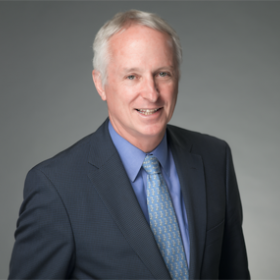
The Diplomatic Season Begins
Mid-September marks the beginning of the diplomatic season, and this is an unusually active year. The EastWest Institute awaits the first events of the United Nations General Assembly—one of the wonderful advantages of living in New York. Russian President Putin will address the UNGA for the first time in a decade. Chinese President Xi will attend for the first time since he came to office, and in addition to his own UNGA address he will participate in a series of summits, from those on the environment to regional stability, during his time in New York—and he will have a summit with President Obama in Washington as well. Washington will also see its first visit from Pope Francis. All this against the backdrop of uncertainty about Russia and the west, the strength of the Chinese economy, the sustained challenge of the Islamic State, and the American electoral season.
EWI will take advantage of the diplomatic season by hosting Prime Minister Essid of Tunisia, the man whose administration is arguably the lone success story coming out of the Arab Spring of 2011. EWI will also meet with Foreign Minister Zarif of Iran at a time when the P5+1 nuclear deal appears to be on the verge of completion. Why these people, at this particular time?
It’s worth remembering what EWI does. EWI is not a traditional think tank that responds with studies or conferences to the key issues of the day. Rather, EWI prides itself on its network of contacts, friends and associates who assess global policy and anticipate the problems of the future. It does so in China, in Russia, in India; it does so regionally around the world.
In this case, in Tunisia, we see the opportunity to evaluate prospects for tackling future questions in the Maghreb and indeed, throughout the Islamic world. In Iran, we see not only the headlines—a nuclear deal that could end the decades-long isolation of Iran—but the long-term implications of what this new agreement could mean for Iran, for its neighbors, and for interested countries and players around the globe.
Our regional office in Brussels is constructing projects that try to be unique in their focus and innovative in their content. How indeed shall we look at a post-nuclear-deal with Iran? What about some of the country’s unsettled but crucial questions, like the role of the Kurds in any vision of regional stability and peace? What about the internal dynamics of what is arguably the most important Arab country, Egypt, or the key bridge between Europe and the region, Turkey? EWI links its analysis and actions in bringing together actors to build bridges and find solutions to their problems with its outreach everywhere in the world. Right now, with the focus of global diplomacy in New York, the institute is uniquely situated to take advantage of opportunities to meet with those in power, introduce them to many outside of governments who nonetheless can be significant players in world affairs, and through this contact and knowledge find new and creative ways to prevent conflict. It may not always be the conflict about which you read today. But it will always try to anticipate the conflict that could come tomorrow, and in doing so, be among the first to steer leaders toward solutions that avoid the worst results of crisis and misunderstanding.
With our upcoming meetings in New York, with our investment in programs overseas, EWI will contribute to solutions—in these particular cases, in the Middle East and North Africa—which is just one of its areas of expertise and action.

